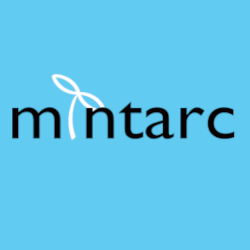New pages
From Mintarc Forge
25 December 2024
- 07:3907:39, 25 December 2024 Security-Focused Operating Systems (hist | edit) [5,789 bytes] Tommy (talk | contribs) (Created page with "== Security-Focused FOSS / OSS Operating Systems == Security-focused operating systems are specifically designed to prioritize security, privacy, and data protection. These operating systems implement robust security mechanisms to protect against various threats, ensuring the confidentiality, integrity, and availability of data. == Characteristics == '''Access Control''' *Security-focused operating systems enforce strict access control measures to ensure that only au...")
- 07:2907:29, 25 December 2024 Development-Focused Operating Systems (hist | edit) [5,228 bytes] Tommy (talk | contribs) (Created page with "Development-Focused FOSS / OSS Operating Systems Development-focused operating systems are specifically designed to provide an environment conducive to software development. These operating systems offer tools, libraries, and frameworks that facilitate coding, testing, and deployment, making them ideal for developers, programmers, and researchers. == Characteristics of FOSS Development-Focused Operating Systems == '''Comprehensive Development Tools''' *FOSS development...")
- 07:1807:18, 25 December 2024 Real-Time Operating Systems (hist | edit) [4,548 bytes] Tommy (talk | contribs) (Created page with "== Real-Time FOSS / OSS Operating Systems == Real-Time Operating Systems are designed to provide predictable and deterministic behavior for time-sensitive applications while allowing users to modify and distribute the source code. These systems are crucial in environments where timing is critical, such as embedded systems, robotics, and industrial automation.")
- 06:1506:15, 25 December 2024 Embedded Operating Systems (hist | edit) [3,867 bytes] Tommy (talk | contribs) (Created page with "== Embedded FOSS /OSS Operating Systems == Embedded operating systems are tailored for embedded devices, which are often resource-constrained and designed to perform specific functions. These operating systems provide the necessary infrastructure to manage hardware resources, run applications, and enable communication in various embedded environments, from consumer electronics to industrial automation. == Characteristics == '''Lightweight Design''' *FOSS embedded opera...")
- 06:0106:01, 25 December 2024 Desktop Operating Systems (hist | edit) [5,520 bytes] Tommy (talk | contribs) (Created page with "== Desktop Operating Systems == FOSS /OSS desktop operating systems are designed primarily for personal computing environments. They provide users with a graphical user interface (GUI) and a wide range of applications for everyday tasks such as web browsing, document editing, multimedia consumption, and gaming. == Characteristics == '''User-Friendly Interfaces''' *FOSS desktop operating systems often come with intuitive graphical user interfaces that make them acces...")
- 05:4705:47, 25 December 2024 Server Operating Systems (hist | edit) [4,483 bytes] Tommy (talk | contribs) (Created page with "== FOSS/OSS Server Operating Systems == These server operating systems are designed to manage network resources, provide services to multiple users, and ensure high reliability and security in various computing environments. A detailed exploration of server operating systems, their characteristics, benefits, and notable examples. == Characteristics == '''Multi-User Support''' *FOSS server operating systems are built to accommodate multiple users simultaneously. They...")
- 03:0003:00, 25 December 2024 Cost Breakdown of FOSS vs. Proprietary Software (hist | edit) [7,769 bytes] Tommy (talk | contribs) (Created page with " == Cost Breakdown of FOSS vs. Proprietary Software== When evaluating whether (FOSS) is truly cheaper than proprietary software from a contracted vendor, it is essential to consider various factors that contribute to the overall cost of ownership. While FOSS often presents an appealing initial financial advantage, the total cost can vary significantly based on implementation, support needs, and organizational capabilities. '''Initial Costs''' *FOSS: Typically free to u...")
- 02:3502:35, 25 December 2024 Data Privacy and Data Ownership (hist | edit) [4,893 bytes] Tommy (talk | contribs) (Created page with "== Know what Third-Party Data Handling is == A third party is an external entity that an organization contracts to perform specific services or functions. These can include data analysis, cloud storage, or other business processes that involve handling sensitive information '''Understanding how third-party organizations handle your data is crucial for several reasons:''' *'''Risk extension:''' Third parties may have their own vendors (fourth parties), expanding the sco...")
- 01:5301:53, 25 December 2024 Explaining Licenses (hist | edit) [1,759 bytes] Tommy (talk | contribs) (Created page with "== Types of Open Source Licenses == Open source licenses are legal agreements that govern the use, modification, and distribution of software source code. They play a crucial role in the open source ecosystem by defining the terms under which developers can use and contribute to open source projects. There are two main categories of open source licenses: '''permissive''' and '''copyleft'''.")
23 December 2024
- 11:4611:46, 23 December 2024 Mintarc overview (hist | edit) [11,903 bytes] Tommy (talk | contribs) (Created page with "mintarc, highlights our focus on Free and Open Source Software (FOSS). We promote FOSS as a cost-effective solution that offers significant benefits to businesses. These include: * '''Elimination of Licensing Fees:''' FOSS removes the need for expensive licensing costs. * '''Flexibility and Transparency:''' Its open structure allows for greater adaptability and visibility into the software's workings. * '''Cost Savings and Risk Reduction:''' Organizations can achieve...")
